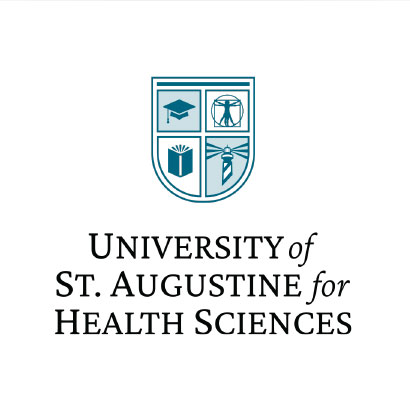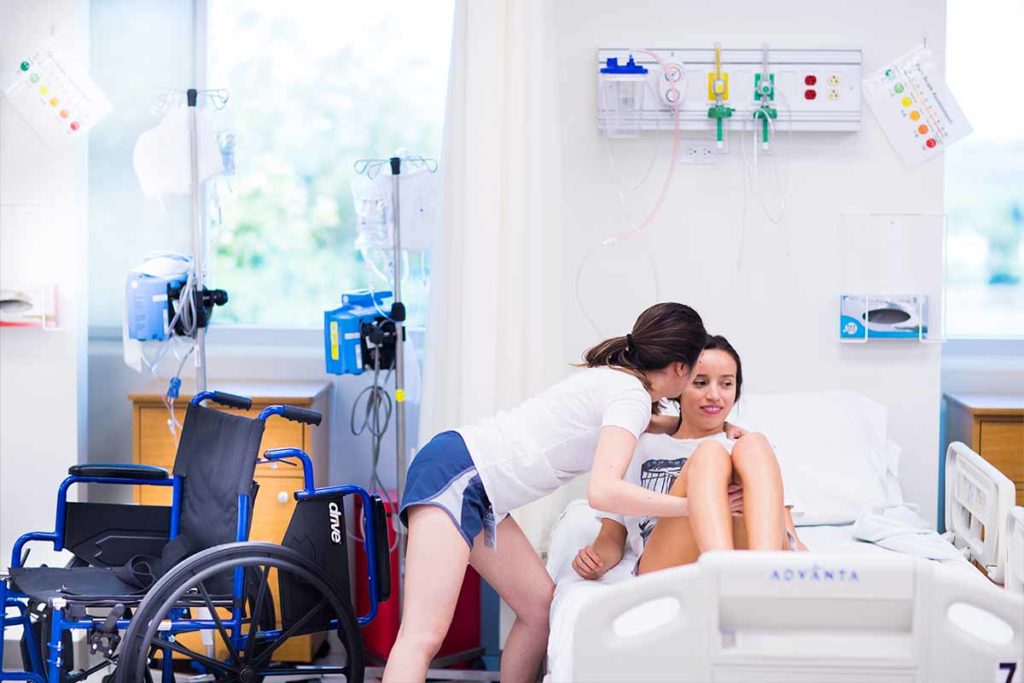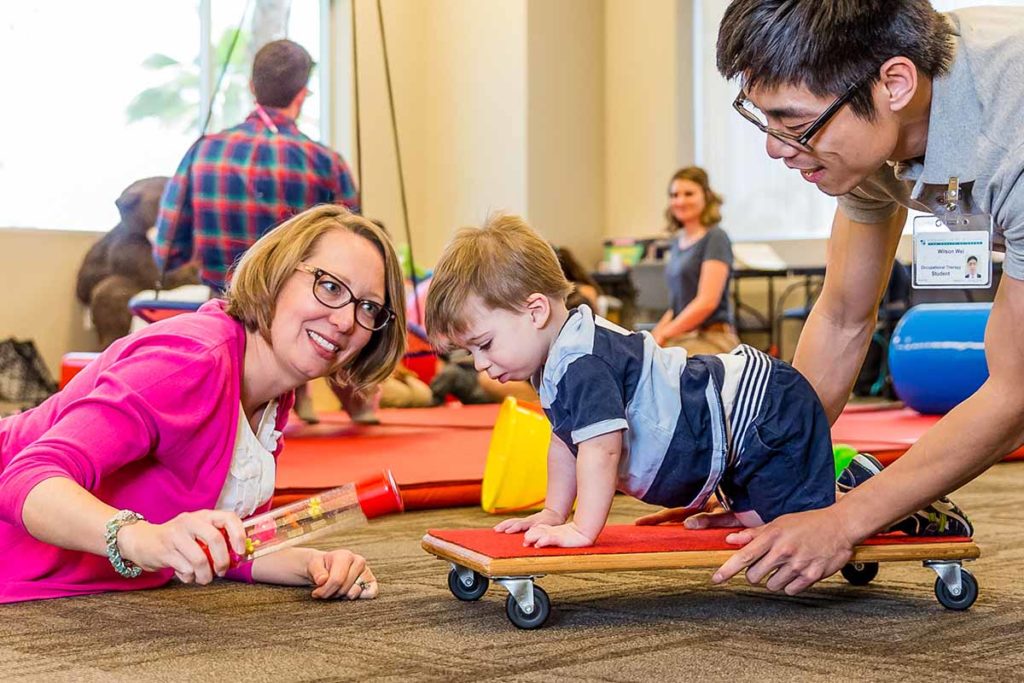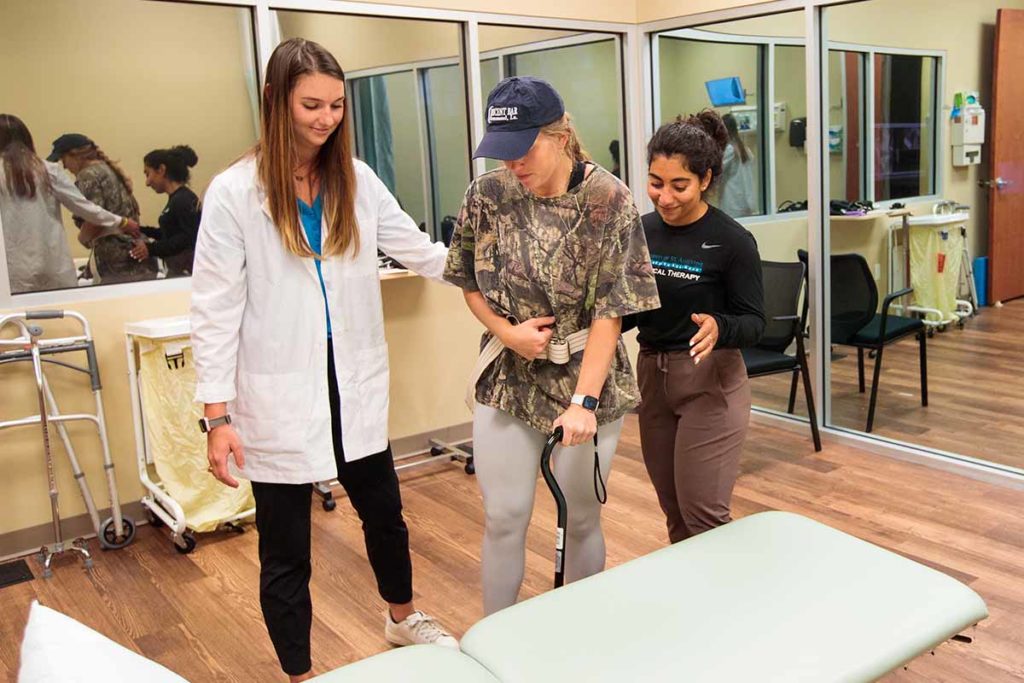

If you want to improve people’s lives as an occupational therapist—but you’re not sure which graduate degree you should pursue—read on!
USAHS’ Master of Occupational Therapy (MOT) and Doctor of Occupational Therapy (OTD) are both entry-level professional programs. To apply for either, you need a bachelor’s degree, ideally in a health sciences field.
Become a Clinician: MOT or OTD
As an occupational therapist, you can help people of all ages expand their abilities by engaging in the activities that matter most to them. Both the MOT and OTD programs will prepare you to become an OT clinician.
However, if your main goal is clinical practice, the MOT may be the best choice for you. Our Residential MOT program typically takes only two years to complete, which is two fewer trimesters than the OTD.* (Our Flex MOT, with its expanded schedule, typically takes 3 years to complete.*) A great-value program, the MOT puts you in position to launch your career, start earning money, and start making a difference sooner. (Some universities call this degree “Master of Science in Occupational Therapy,” or “MSOT.”)
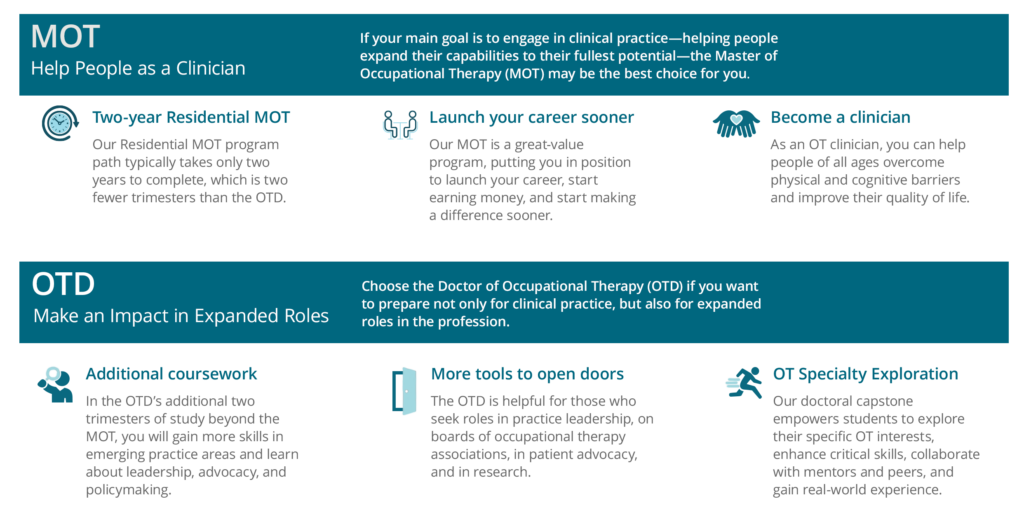

Make an Impact in Expanded Roles: OTD
Our OTD program includes two additional trimesters of study beyond the MOT, with courses in leadership, advocacy, and policymaking. As an OTD student, you will also complete a capstone project: a research study and presentation on an OT topic of your choice. Many of our students’ capstone projects are groundbreaking and innovative, examining emerging practice areas of OT and quantifying the effects of OT interventions. If research interests you, the capstone project is a valuable opportunity to hone your skills.
“I chose the OTD program because I was thinking about the future. I want to open my own clinic someday. The OTD offers more options, and the additional schooling will help down the road.” —Nadim Batshon, OTD ‘19
The doctoral degree positions you to be more competitive in the OT job market. It also may be helpful for those who seek expanded roles in the profession, such as practice owner, board member, or policymaker. The Residential OTD typically takes 2.7 years to complete, while the Flex OTD takes 4 years.*
Other OT Paths
Earning a bachelor’s degree is an essential qualification for graduate study and the path to becoming a licensed OT. However, if you want to become an occupational therapy assistant (OTA), you need only an associate degree from an accredited OTA program.
On the other end of the spectrum, once you are a licensed OT with work experience in a specialty area such as pediatrics or gerontology, you can earn a specialty certification through the American Occupational Therapy Association (AOTA) and other organizations.
Why USAHS?
Whether you choose our master’s or doctoral program, you will be part of a close-knit community of budding occupational therapists. You’ll be mentored by our accomplished faculty members, many of whom also publish research, serve on boards, work in schools, or practice in clinics. You will have a chance to practice working with mock patients in our state-of-the-art simulation centers, which include simulated home and clinical settings. In some lab courses, you will collaborate with your peers in our physical therapy and speech-language pathology programs. Both the MOT and OTD programs also include two trimesters of fieldwork, where you will gain practice with assessing and treating real patients in different settings. You have a most exciting journey ahead!
*Time to completion may vary by student, depending on individual progress, credits transferred, and other factors.
The University of St. Augustine for Health Sciences (USAHS) offers hands-on Master of Occupational Therapy (MOT) and Doctor of Occupational Therapy (OTD) degrees. Join a collaborative cohort of peers who learn under the mentorship of expert faculty-practitioners. Practice with mock patients in our state-of-the-art simulation centers and learn anatomy with our high-tech tools. Prepare for clinical practice with patients across the lifespan, as well as advanced roles in research, practice leadership, and policymaking. Residential (online coursework + in-person labs on weekdays) and Flex (online coursework + in-person labs on weekends) formats are available.
